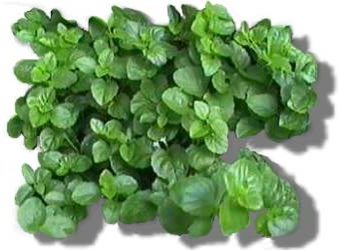 For hundreds, if not thousands, of years people have used plants to treat various ailments. In fact there is evidence that those who lived about 60,000 years ago used plants for medicinal purposes.
For hundreds, if not thousands, of years people have used plants to treat various ailments. In fact there is evidence that those who lived about 60,000 years ago used plants for medicinal purposes.One of the most important attributes of plants is that they have almost a limitless ability to synthesize aromatic substances, most of which have phenols or their oxygen-substituted derivatives such as tannins. Most of these are secondary metabolites, of which at least 12,000 have been isolated. In many cases these substances serve as plant defense mechanisms against predation by microorganisms, insects and herbivores. For that matter, many of the herbs and spices that we use to season food actually have include medicinal compounds.
Natural cures and traditional medicine
In recent years, there has been an increased search for drugs and dietary supplements derived from plants. Pharmacologists, microbiologists, botanists, and natural-product chemists are combing the area for phytochemicals that could be developed for the treatment of various diseases. In fact, about 25% of today's drugs used in the U.S. are derived from plants.
Many of the pharmaceuticals we use today, including drugs such as opium, aspirin, digitalis, and quinine are basically herbal remedies. For that matter, the World Health Organization estimates that 80% of the world's population presently uses herbal medicines for some aspect of primary health care. Herbal medicine is a major component in all traditional medicine systems and a common element in homeopathic, naturopathic, traditional Chinese medicine, and Native American Indian medicine.
According to the online encyclopedia, Wikipedia, "a survey released in May 2004 by the National Center for Complementary and Alternative Medicine focused on who used complementary and alternative medicines (CAM), what was used, and why it was used. The survey was limited to adults age 18 years and over during 2002 living in the United States. According to this survey, herbal therapy, or use of natural products other than vitamins and minerals, was the most commonly used CAM therapy (18.9%), when all use of prayer was discounted."
No comments:
Post a Comment